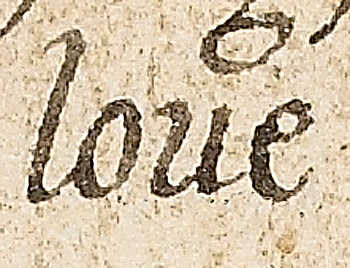Song of Roland
General Information
Plot Summary

[Begins incomplete]. The treacherous Ganelyn returns from his mission to Saragossa, bringing wine and maidens and claiming that the Sultan will be baptised in France. Charlemagne delightedly sets off homewards, but that night he suffers from disturbing dreams about betrayal. At the narrow pass of the ‘Gates of Spain’, Ganelyn volunteers to lead the vanguard and suggests that Roland take the rearguard. Knowing Ganelyn’s hatred of Roland, Charlemagne is uneasy, but Roland accepts. The other knights also fear a trick, but the Peers and many others choose to remain behind with Roland while the main army crosses into France.
As the Saracen troops prepare themselves, Amaris, Prince of Portugal, sets out with 40,000 men to attack Roland. Encountering Roland’s own advance party of 10,000, his men surround and overpower them: only the leader, Sir Gauter, escapes to warn Roland of Ganelyn’s betrayal. Roland rallies and comforts his remaining troops. Meanwhile, Charlemagne is anxious about Roland’s lengthy absence and recalls his dreams. His men accuse Ganelyn, who rebuffs their accusations. Charles establishes an uneasy peace, and they proceed to Cardoile.
As Roland’s men debate whether to flee or fight, Amaris returns to the Sultan with news of his victory. He is granted reinforcements to take on the rest of the Christians, and assembles 100,000 men led by eleven Saracen kings. Seeing the approaching troops, Oliver urges Roland to sound his horn and summon Charlemagne’s aid, as do the other barons. Roland refuses, however, and his men pledge to stand by him and fight.
The day of the battle dawns, and Turpin performs a mass. Roland looks out over the assembled Saracens and weeps, before offering a prayer and vowing that the Christians will not flee. He returns to his men, urges them to be brave, and the French approach the Saracens. Amaris rides out in front of his troops and challenges Roland, who quickly slays him with a spear. The other peers kill a succession of Saracen challengers, until ten of the Saracen kings lie dead. The remaining 10,000 Saracens attack Roland and his men, who perform incredible feats of valour. By sunset, there are no Saracens left and the French gather and give thanks that they are alive.
The main Saracen army approaches, and although their numbers are vast, Roland and his men slay many: an ominous storm batters France as bodies, both Christian and Saracen, pile up on the battlefield. The Saracen King Malagy desperately calls on the Sultan to send his remaining troops to avoid defeat. Promising rich rewards for bravery, the Sultan marshals his men, planning to attack in waves. The slaughter recommences and although Saracen generals get the better of several French heroes, their deaths are swiftly avenged by Roland and Oliver.
So many die that the battlefield runs with blood. The Sultan, beginning to despair, sends fresh troops against the French, who drive his men into a dale. As another fresh host appears, Roland urges his weary men to rest. He suggests sending to Charlemagne for help, but Oliver answers him angrily [ends incomplete]
From: Sidney J. Herrtage, ed. The Sege off Melayne and The Romance of Duke Rowland and Sir Otuell of Spayne EETS os 35 (London: N. Trübner & Co., 1882).
Manuscript: London, British Library, MS Lansdowne 388
Manuscripts
Click a title below to search for all romances in that manuscript.